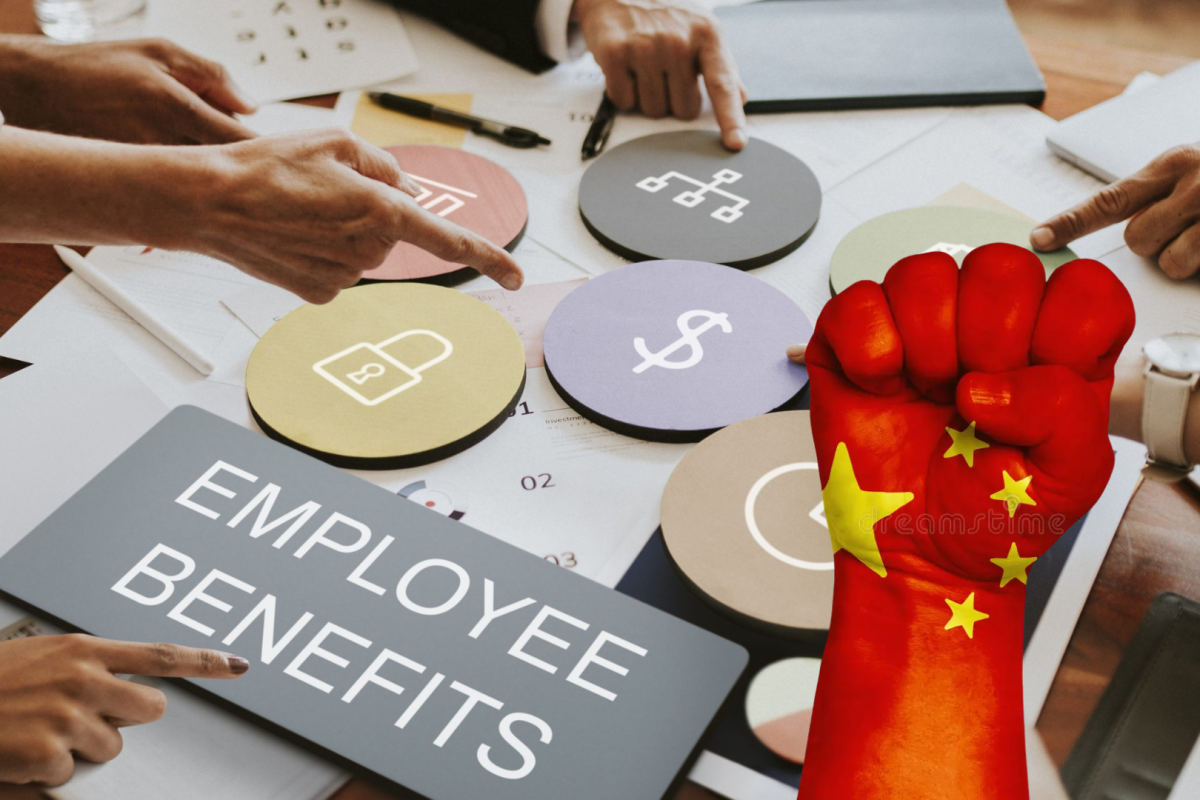China has a well-established system of mandatory benefits that employers are required to provide to employees. Understanding these mandatory benefits is crucial for companies looking to hire and manage a workforce in China, especially when utilizing EOR (Employer of Record) or PEO (Professional Employer Organization) services. This guide outlines the key mandatory benefits in China, ensuring compliance and helping businesses foster strong employee relations.
Key Mandatory Benefits in China
Here’s a breakdown of the major mandatory benefits in China, which typically include social insurance and housing fund contributions, along with additional perks to ensure employee well-being and security.
1. Pension Insurance
Description: The pension insurance system in China is designed to provide employees with income after retirement. Both employers and employees contribute to the pension scheme.
Employer Contribution: Approximately 16% of the employee’s salary.
Employee Contribution: Around 8% of their salary.
2. Medical Insurance
Description: Medical insurance covers employee healthcare, including hospitalization, outpatient services, and maternity care. This is essential to ensure access to medical services for employees and their families.
Employer Contribution: Generally ranges from 6-7% of the employee’s salary.
Employee Contribution: Around 2% of their salary, with an additional small fixed fee (often CNY 3-10 monthly).
3. Unemployment Insurance
Description: Unemployment insurance provides temporary financial support to employees who lose their jobs. This benefit is intended to ease the transition while workers seek new employment.
Employer Contribution: Typically 0.5-1% of the employee’s salary.
Employee Contribution: Approximately 0.2-1%.
4. Work-Related Injury Insurance
Description: This insurance covers medical expenses and compensation for employees who suffer work-related injuries. The rates vary based on the industry and the risk level of the job.
Employer Contribution: Ranges from 0.2-1.9%, depending on the industry and location.
Employee Contribution: No contribution required from employees.
5. Maternity Insurance
Description: Maternity insurance ensures that female employees receive financial support during pregnancy, childbirth, and recovery. It also covers medical expenses related to childbirth.
Employer Contribution: Typically 0.5-1%.
Employee Contribution: No contribution required from employees.
6. Housing Fund
Description: The housing fund helps employees save money for housing-related expenses, including buying, renting, or renovating homes. Both employers and employees contribute to the fund, which is managed at a local level.
Employer Contribution: Varies by location, generally between 5-12% of the employee’s salary.
Employee Contribution: Usually between 5-12%, depending on the city.
Additional Benefits and Considerations
Annual Leave and Public Holidays
In addition to mandatory insurances and the housing fund, employers in China must comply with statutory leave entitlements, including:
Annual leave: Employees are entitled to 5-15 days of paid annual leave, depending on their length of service.
Public holidays: China has 11 statutory public holidays each year, such as Chinese New Year and National Day.
Sick Leave and Maternity Leave
Employees are entitled to sick leave with varying compensation, depending on the severity of the illness and local regulations.
Female employees are entitled to at least 98 days of maternity leave, with extended leave in case of difficult childbirth or multiple births.
Understanding Mandatory Benefits for Employers
Compliance with Local Regulations
The mandatory benefits system in China is regulated at both the national and local levels. While the central government sets the overall framework, provinces and cities may adjust contribution rates or eligibility criteria. Employers must stay informed of local regulations to ensure full compliance.
Managing Benefits with EOR/PEO Services
Employers Without a Presence in China: Leveraging EOR or PEO services like GlobainePEO can simplify managing mandatory benefits. These services ensure compliance with local labor laws, relieving employers of the administrative burden.
Employers with a Chinese Entity: Companies with a registered entity must manage social insurance and housing fund contributions directly, following both national and local guidelines. EOR/PEO services can still assist in navigating complex regulatory requirements.
Additional Considerations for Global Employers
Contribution Caps: China has contribution caps for some of the mandatory benefits. These caps vary by region and are based on local average wages.
Changing Rates: Social insurance rates may change from year to year based on local government decisions. Employers should stay updated on any changes to avoid non-compliance.
Final Thoughts
For employers using EOR or PEO services in China, understanding the mandatory benefits system is vital for maintaining compliance and keeping employees happy. Ensuring that your business follows all national and local regulations will help you avoid penalties and foster a positive working environment.
GlobainePEO – Your Trusted Partner
At GlobainePEO, we help employers navigate the complexities of managing mandatory benefits in China. From ensuring compliance with local labor laws to managing payroll and contributions, we provide the support your business needs to thrive. Let us handle your workforce management while you focus on growing your business.

